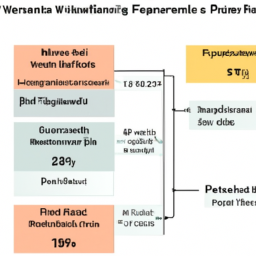Equity investments are an attractive prospect for many investors in the financial sector. An equity investment is a type of financial asset that provides potential profits to the investor through the ownership of shares in a company. Equity investments are often seen as an alternative to traditional investments such as stocks and bonds. Equity investments can be divided into three main categories: public equity, private equity, and venture capital.
Public equity investments involve the buying and selling of stocks on public exchanges. investors who purchase stocks in public companies are able to benefit from any potential appreciation of the stock price. Additionally, investors can receive dividends when the company pays out profits to its shareholders.
private equity investments take place outside of public exchanges. Rather than investing in publicly traded stocks, private equity investors acquire interests in private companies. These investments are often characterized by high levels of risk due to the lack of liquidity and the lack of transparency in private companies. However, they can also provide substantial returns if the investment is successful.
venture capital investments involve the financing of new and emerging companies. venture capital are willing to take on significant levels of risk in order to provide capital and expertise to young, innovative companies. The potential returns from these investments can be substantial, however, there is also a high level of risk associated with venture capital investments.
One of the main advantages of equity investments is their ability to provide investors with potential profits. Equity investments can also provide investors with a hedge against inflation because they tend to appreciate in value over time. Additionally, equity investments can provide diversification to an investor's portfolio, as they are not linked to any one specific asset.
However, there are some risk associated with equity investments. For instance, public equity investments can be subject to market volatility, which can affect the overall value of the investment. private equity investments can also be subject to liquidity risk, as they may be difficult to sell in the event of an emergency. Furthermore, venture capital investments are subject to significant levels of risk as the companies being invested in are often unproven.
In conclusion, equity investments offer investors the potential for significant returns in exchange for taking on higher levels of risk. While there are some risk associated with equity investments, they can still be a valuable part of an investor's portfolio.
